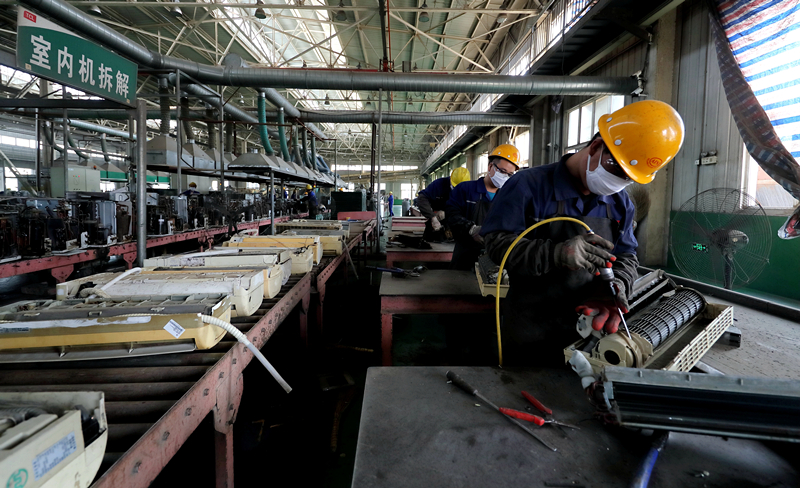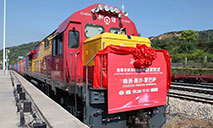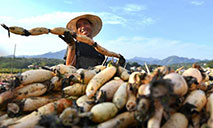China's "Internet +" recycling model for renewable resources reaches mature stage in its development
China's networks for the recycling of renewable resources have been established in most parts of the country, with the "Internet +" recycling model for renewable resources having gradually matured over time, as indicated by recent statistics, which point to continuous refinements to the recycling system for renewable resources, a system that integrates recovery, sorting, collection and distribution.

Workers dismantle washing machines at TCL-AOBO Environmental Protection and Development Co in north China's Tianjin. (China Daily/Wang Jing)
According to the “Report on the Development of China's Renewable Resources Recycling Industry (2020)” that was recently released by the Ministry of Commerce, as of 2019 year-end, the total volume of renewable resources recovered in China exceeded 354 million tons, representing a total value of 900.38 billion yuan ($139.37 billion).
The report also pointed out that China is home to roughly 100,000 renewable resources recycling enterprises, which employ a combined total of around 15 million staff members. Meanwhile, the total volume of recycled resources in major varieties is gradually on the rise.
The recycling of resources has gradually been facilitated in China over time. "After the implementation of garbage sorting in Shanghai, we were able to deliver old clothes and discarded electrical appliances to garbage sorting managers, who will in turn deal with them accordingly," said Bai Yun, a citizen in Shanghai.
In addition to Shanghai, other regions also saw increases in the convenience of recycling waste materials, with the Internet serving as a viable platform to promote this effort.
Xiao Pei, a citizen in Beijing, has disposed of over 100 articles of outdated clothing through Idle Fish, China's largest second-hand trading platform. "Although the selling price on Idle Fish is a little lower than the market price, it has still proven to be a good way for me to receive some money," said Xiao Pei who, according to her list of transactions on Idle Fish, has sold 126 items at combined earnings of about 46,000 yuan.
Data show that between 2017 and 2020, more than 50,000 tons of used clothes and 23.7 million used books were collected on Idle Fish.
Second-hand goods such as old clothes, bed sheets and shoes can also be recycled and exchanged into virtual articles via a small Shanghai-based recycling company called Feimayi — or “Flying Ants”.
"I usually sort out old clothes with every change of the seasons and make an appointment with Flying Ants for door-to-door recycling," said a Beijing resident surnamed Tang, who disclosed that the virtual "energy points" she collected by donating old clothing on the platform had enabled her to engage in public welfare by indirectly planting physical trees.
When reprocessing second-hand clothes, the head of an old clothes sorting factory located in Hangzhou, capital of east China's Zhejiang province, pointed out that 20 percent of their collected clothing would be sold to downstream factories for further recycling, including into recycled materials used in the manufacturing of carpets, protective greenhouse coverings and other products, while 15 percent of the sorted clothes in good condition were donated.
Meanwhile, the component materials found in hardware disassembled from discarded electrical appliances, such as compressors, motors, wires, and heat sinks, are dismantled in an environmentally friendly way and then further reprocessed into recycled materials, such as copper, aluminum, steel and plastic, or otherwise resold to downstream enterprises for reuse.
This recycling model can not only turn waste materials into things of value, but also reduce the inefficient use of resources, said an industry insider.
Photos
Related Stories
Copyright © 2021 People's Daily Online. All Rights Reserved.










